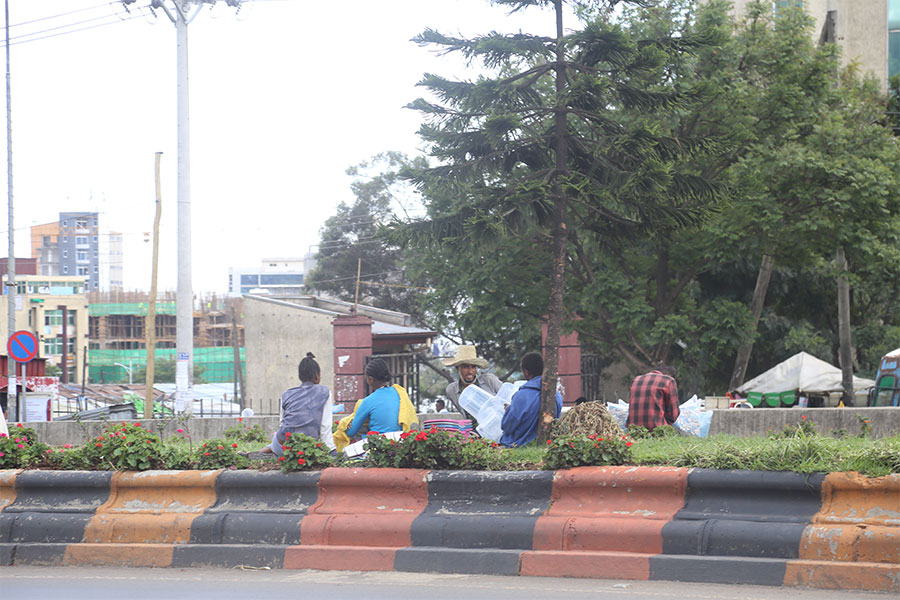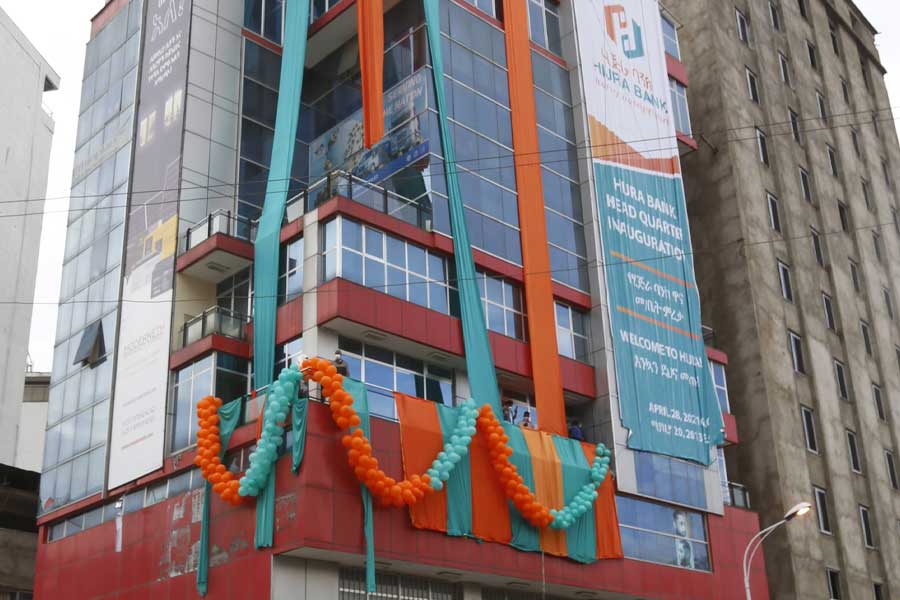
Editorial | Apr 09,2022
Feb 25 , 2023
By Bjorn Lomborg
One of humanity's most significant achievements in the last century was increasing food production. In the 100 years to 2000, there was a six-fold increase in crop harvests. The global population increased less than four-fold; ordinary people today could have around 50pc more food available than their great, great grandparents.
Most of the increase in production came from farmers growing more food from each hectare of land. The extraordinary progress is due to the Green Revolution that turbo-charged modern inputs for farming.
The Nobel Peace Prize-winning agronomist Norman Borlaug, who spearheaded the intensification of modern farming methods, saved more than one billion lives from hunger. As well as feeding people, the Green Revolution made societies much richer. As agriculture becomes more efficient, people are freed from backbreaking labour and engaged in much broader productive activities.
The Green Revolution was an extraordinary achievement.
However, the world needs a second Green Revolution to extend the benefits to the world's poorest and reduce global hunger. It is especially needed today as we fall behind on feeding the planet.
Since 2016, world leaders have made grand development promises for every country by 2030, called the Sustainable Development Goals (SDGs). One of the most crucial goals focuses on boosting agriculture − from ending hunger to ensuring better nutrition and more sustainable farming.
Unfortunately, we are failing our pledges, not just because Covid derailed progress. A tracker shows that even based on progress before the pandemic's disruption, food promises by politicians would not be met by 2030 but more than 80 years later, in the early 2100s.
Indeed, the entire world will be late on all its major commitments. We are now at the halftime mark for our grand promises, but we are nowhere near halfway. The Copenhagen Consensus has been working with some of the world's best economists to identify the most effective policies for the remaining time. If we cannot do everything, we should focus on the most effective solutions in every area, including agriculture and hunger.
Our researchers examined many agricultural policies, like subsidizing fertilizer and increasing irrigation. These all deliver moderate societal benefits, but the effects are not remarkable for every dollar invested. However, one clear opportunity for humanity is a big increase in investment in agricultural research and development (R&D).
There is still significant underspending on agricultural R&D for poorer countries. Big corporations understandably spend most in rich countries where large-scale farmers have deep pockets. That is why in 2015, 80pc of global agricultural R&D funding went to rich and upper-middle-income countries, while lower-middle-income countries got the remaining. The world's poorest countries, including Ethiopia, got almost nothing.
This unequal investment has been persistent for more than half a century. It is a primary reason why the Green Revolution did not help the poorest as much as wealthier countries. Cereal yields in high-income countries almost tripled from 1961 to 2018, whereas low-income countries saw a much smaller increase of 50pc.
The untapped potential is enormous.
Research published this week by Copenhagen Consensus demonstrates that the world will only need to spend a small amount more each year to generate vast benefits. It estimates the additional cost of R&D this decade is about 5.5 billion dollars annually—a relatively small sum, less even than Americans spend on ice cream every year.
This investment will generate better seeds and high-yield crops that can also better handle weather changes like those we will see from climate change. Creating bigger and more resilient harvests will benefit farmers, and producing more food will help consumers with lower prices. The total net benefit over the next 35 years for farmers and consumers will exceed two trillion dollars. Every dollar spent delivers an astounding 33 dollars in social benefits, making this a spectacular investment.
By 2050, this additional funding will boost agricultural output by 10pc, reduce food prices by 16pc, and increase per capita incomes by four percent. The investment will increase GDP in developing countries by 2.2 trillion dollars by 2030 and 11.9 trillion dollars by 2050, a two percent and six percent increase in per capita incomes, respectively.
And more efficient agriculture will reduce global climate emissions by more than one percent.
Agricultural R&D is a phenomenal investment because not only do we make agrarian workers more productive, but we enable more people to be productive and innovative in other sectors, too. It leads to fewer people being hungry and lowers food costs for everyone.
We cannot deliver on all our promises for 2030. But we should deliver on agricultural research and development for the poorest half of the planet because it is one of humanity's best investments.
PUBLISHED ON
Feb 25,2023 [ VOL
23 , NO
1191]


Editorial | Apr 09,2022

Radar | Jul 13,2024

Fortune News | Jul 03,2024

Radar | May 27,2023

Sunday with Eden | Apr 03,2021

Radar | Feb 16,2019

Commentaries | Nov 21,2020

Editorial | Jul 25,2020

View From Arada | Dec 04,2022

Fortune News | Apr 30,2021

My Opinion | 131970 Views | Aug 14,2021

My Opinion | 128359 Views | Aug 21,2021

My Opinion | 126296 Views | Sep 10,2021

My Opinion | 123912 Views | Aug 07,2021

Dec 22 , 2024 . By TIZITA SHEWAFERAW
Charged with transforming colossal state-owned enterprises into modern and competitiv...

Aug 18 , 2024 . By AKSAH ITALO
Although predictable Yonas Zerihun's job in the ride-hailing service is not immune to...

Jul 28 , 2024 . By TIZITA SHEWAFERAW
Unhabitual, perhaps too many, Samuel Gebreyohannes, 38, used to occasionally enjoy a couple of beers at breakfast. However, he recently swit...

Jul 13 , 2024 . By AKSAH ITALO
Investors who rely on tractors, trucks, and field vehicles for commuting, transporting commodities, and f...

Jul 5 , 2025
Six years ago, Ethiopia was the darling of international liberal commentators. A year...

Jun 28 , 2025
Meseret Damtie, the assertive auditor general, has never been shy about naming names...

Jun 21 , 2025
A well-worn adage says, “Budget is not destiny, but it is direction.” Examining t...

Jun 14 , 2025
Yet again, the Horn of Africa is bracing for trouble. A region already frayed by wars...

Jul 6 , 2025 . By BEZAWIT HULUAGER
The federal legislature gave Prime Minister Abiy Ahmed (PhD) what he wanted: a 1.9 tr...

Jul 6 , 2025 . By YITBAREK GETACHEW
In a city rising skyward at breakneck speed, a reckoning has arrived. Authorities in...

Jul 6 , 2025 . By NAHOM AYELE
A landmark directive from the Ministry of Finance signals a paradigm shift in the cou...

Jul 6 , 2025 . By NAHOM AYELE
Awash Bank has announced plans to establish a dedicated investment banking subsidiary...